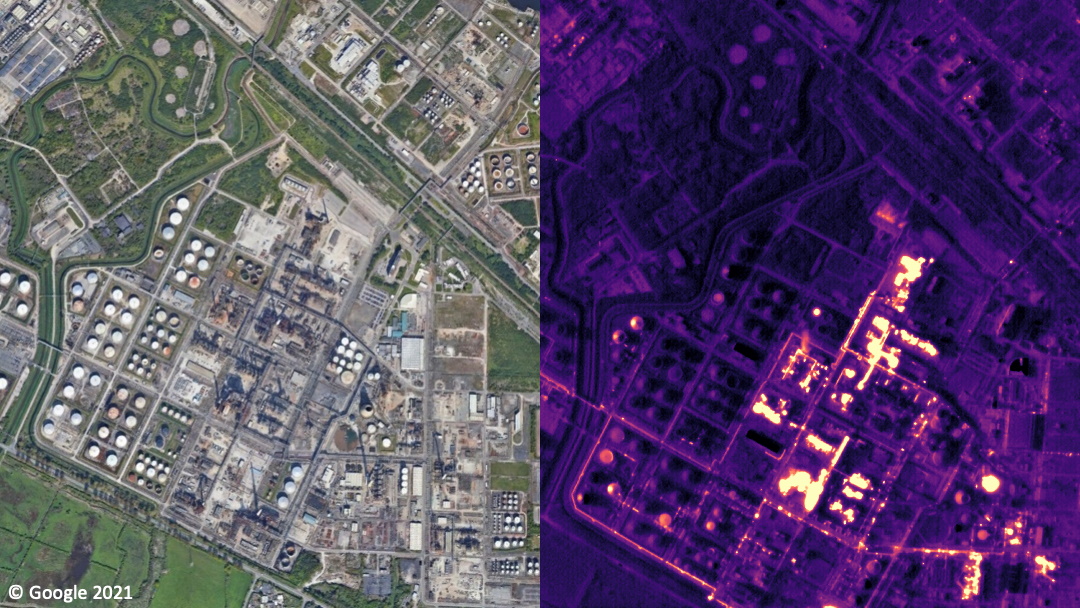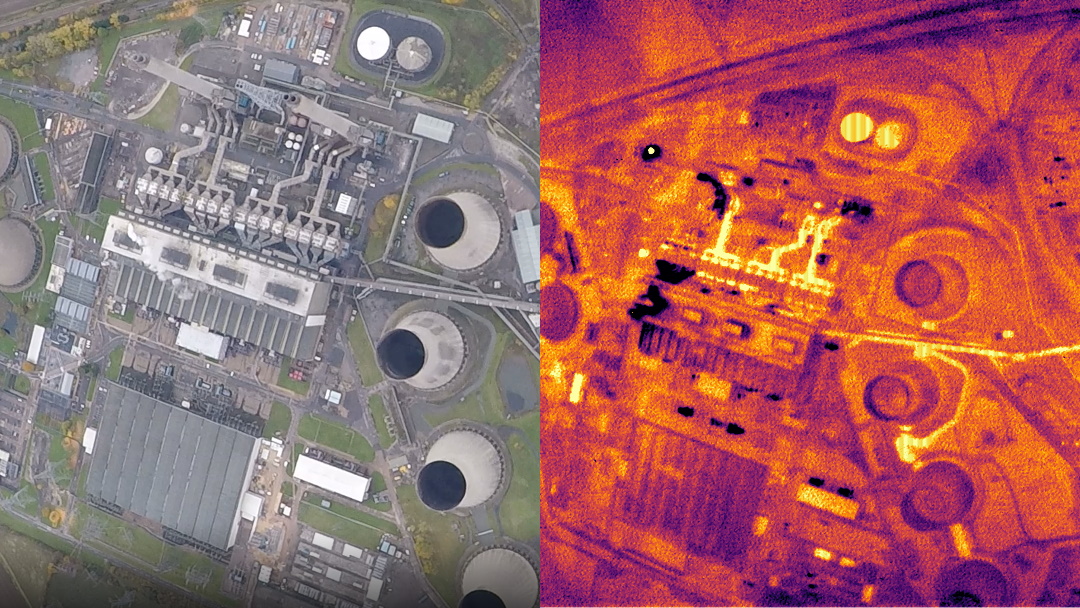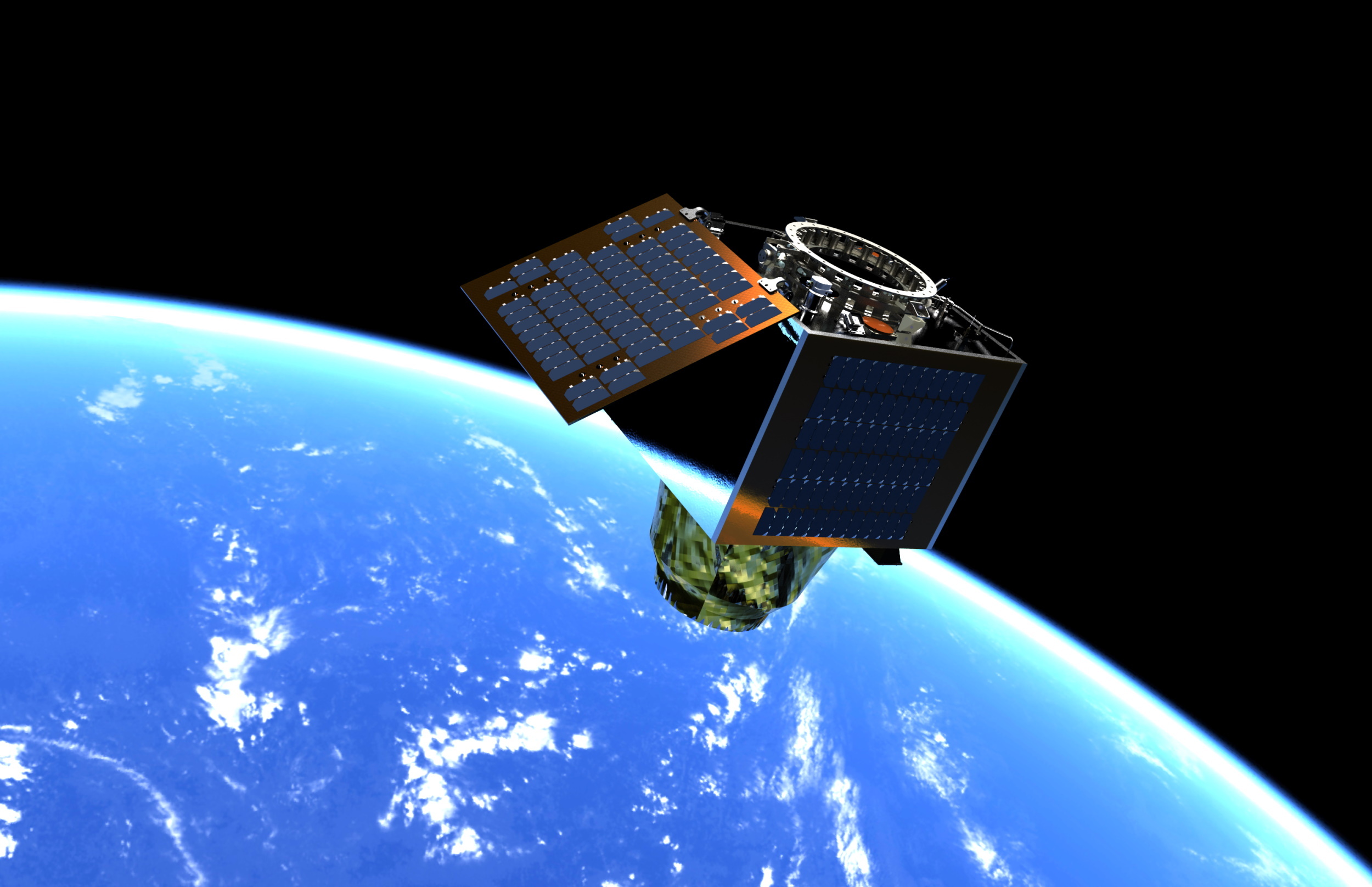Earth imaging is an increasingly crowded space, but Satellite Vu is taking a different approach by focusing on infrared and heat emissions, which are crucial for industry and climate change monitoring. Fresh from TechCrunch’s Startup Battlefield, the company has raised a £3.6M ($5M) seed round and is on its way to launching its first satellite in 2022.
The nuts and bolts of Satellite Vu’s tech and master plan are described in our original profile of the company, but the gist is this: while companies like Planet have made near-real-time views of the Earth’s surface into a thriving business, other niches are relatively unexplored — like thermal imaging.
The heat coming off a building, geological feature, or even a crowd of people is an enormously interesting data point. It can tell you whether an office building or warehouse is in use or empty, and whether it’s heated or cooled, and how efficient that process is. It can find warmer or cooler areas that suggest underground water, power lines, or other heat-affecting objects. It could even make a fair guess at how many people attended a concert, or perhaps an inauguration. And of course it works at night.
Pollution and other emissions are also easily spotted and tracked, making infrared observation of the planet an important part of any plan to monitor industry in the context of climate change. That’s what attracted Satellite Vu’s first big piece of cash, a grant from the U.K. government for £1.4M, part of a £500M infrastructure fund.
CEO and founder Anthony Baker said that they began construction of their first satellite with that money, “so we knew we got our sums right,” he said, then began the process of closing additional capital.
Seraphim Capital, a space-focused VC firm whose most relevant venture is probably synthetic aperture satellite startup Iceye, matched the grant funds, and with subsequent grant the total money raised is in excess of the $5M target (the extra is set aside in a convertible note).
“What attracted us to Satellite Vu is several things. We published some research about this last year: there are more than 180 companies with plans to launch smallsat constellations,” said Seraphim managing partner James Bruegger. But very few, they noted, were looking at the infrared or thermal space. “That intrigued us, because we always thought infrared had a lot of potential. And we already knew Anthony and Satellite Vu from having put them through our space accelerator in 2019.”
They’re going to need every penny. Though the satellites themselves are looking to be remarkably cheap, as satellites go — $14-15M all told — and only seven will be needed to provide global coverage, that still adds up to over $100M over the next couple years.
Seraphim isn’t daunted, however: “As a specialist space investor, we understand the value of patience,” said Bruegger. Satellite Vu, he added, is a “poster child” for their approach, which is to shuttle early stage companies through their accelerator and then support them to an exit.
It helps that Baker has lined up about as much potential income from interested customers as they’ll need to finance the whole thing, soup to nuts. “Commercial traction has improved since we last spoke,” said Baker, which was just before he presented at TechCrunch’s Disrupt 2020 Startup Battlefield:
The company now has 26 letters of intent and other leads that amount to, in his estimation, about a hundred million dollars worth of business — if he can provide the services they’re asking for, of course. To that end the company has been flying its future orbital cameras on ordinary planes and modifying the output to resemble what they expect from the satellite network.
Companies interested in the latter can buy into the former for now, and the transition to the “real” product should be relatively painless. It also helps create a pipeline on Satellite Vu’s side, so there’s no need for a test satellite and service.

Another example of the simulated satellite imagery – same camera as will be in orbit, but degraded to resemble shots from that far up.
“We call it pseudo-satellite data — it’s almost a minimum viable product.We work with the companies about the formats and stuff they need,” Baker said. “The next stage is, we’re planning on taking a whole city, like Glasgow, and mapping the whole city in thermal. We think there will be many parties interested in that.”
With investment, tentative income, and potential customers lining up, Satellite Vu seems poised to make a splash, though its operations and launches are small compared with those of Planet, Starlink, and very soon Amazon’s Kuiper. After the first launch, tentatively scheduled for 2022, Baker said the company would only need two more to put the remaining six satellites in orbit, three at a time on a rideshare launch vehicle.
Before that, though, we can expect further fundraising, perhaps as soon as a few months from now — after all, however thrifty the company is, tens of millions in cash will still be needed to get off the ground.
source https://techcrunch.com/2021/04/22/satellite-vus-5m-seed-round-will-fuel-the-launch-of-its-thermal-imaging-satellites/




0 Comments